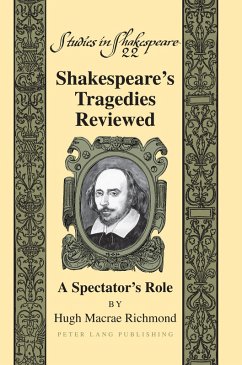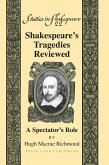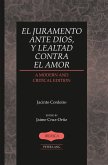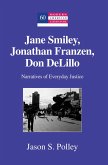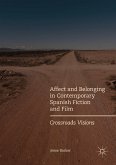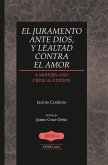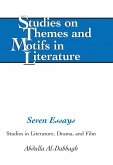Shakespeare's Tragedies Reviewed explores how the recognition of spectator interests by the playwright has determined the detailed character of Shakespeare tragedies. Utilizing Shakespeare's European models and contemporaries, including Cinthio and Lope de Vega, and following forms such as Aristotle's second, more popular style of tragedy (a double ending of punishment for the evil and honor for the good), Hugh Macrae Richmond elicits radical revision of traditional interpretations of the scripts. The analysis includes a major shift in emphasis from conventionally tragic concerns to a more varied blend of tones, characterizations, and situations, designed to hold spectator interest rather than to meet neoclassical standards of coherence, focus, and progression. This reinterpretation also bears on modern staging and directorial emphasis, challenging the relevance of traditional norms of tragedy to production of Renaissance drama. The stress shifts to plays' counter-movements to tragic tones, and to scripts' contrasting positive factors to common downbeat interpretations - such as the role of humor in
King Lear and the significance of residual leadership in the tragedies as seen in the roles of Malcolm, Edgar, Cassio, and Octavius, as well as the broader progressions in such continuities as those within Shakespeare's Roman world from
Julius Caesar and
Antony and Cleopatra to
Cymbeline. It becomes apparent that the authority of the spectator in such Shakespearean titles as
What You Will and
As You Like It may bear meaningfully on interpretation of more plays than just the comedies.
Dieser Download kann aus rechtlichen Gründen nur mit Rechnungsadresse in A, B, BG, CY, CZ, D, DK, EW, E, FIN, F, GR, HR, H, IRL, I, LT, L, LR, M, NL, PL, P, R, S, SLO, SK ausgeliefert werden.

